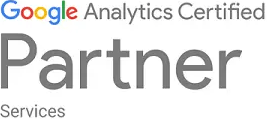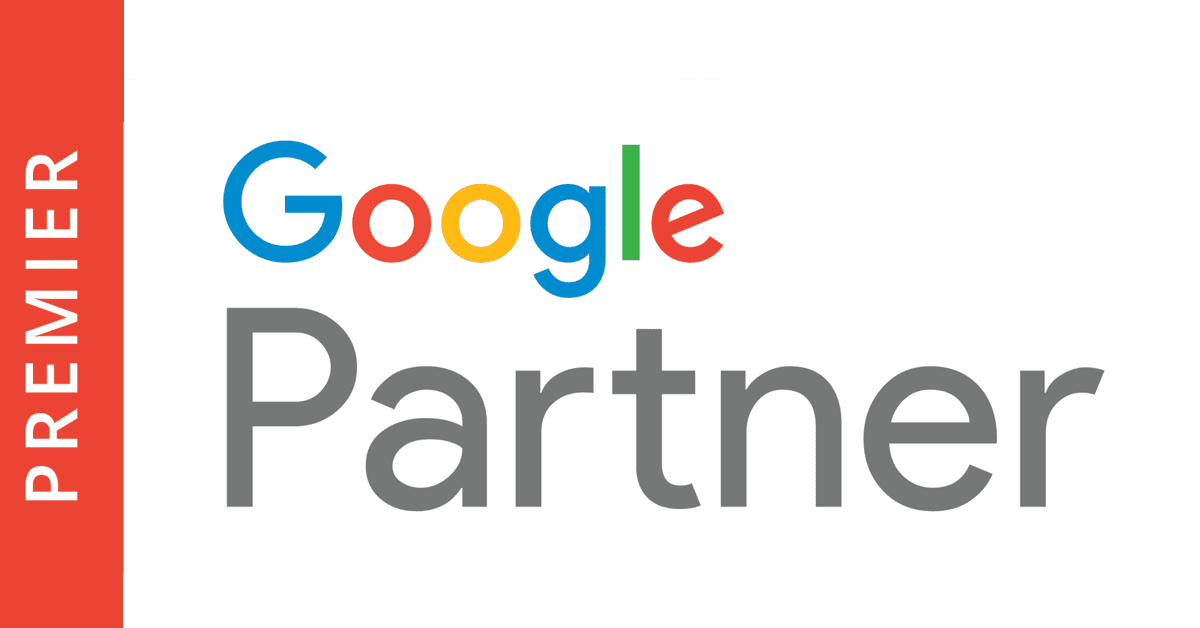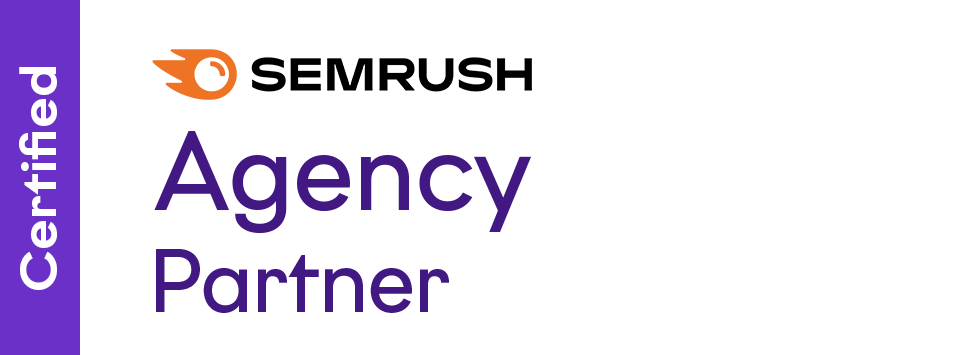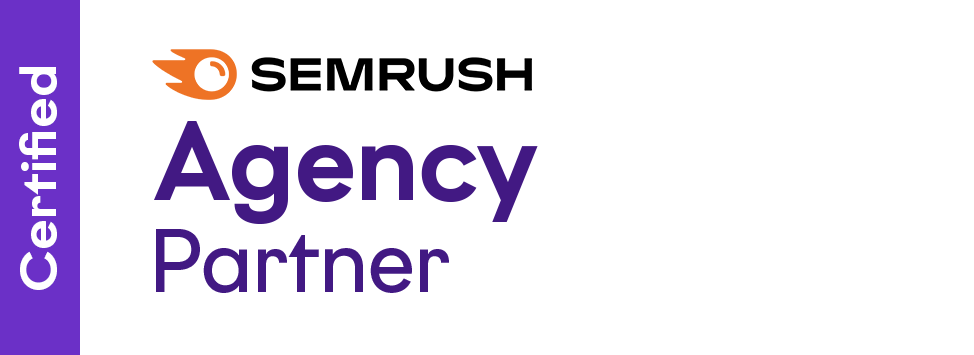The importance of securing a prime position on search engine results pages cannot be overstated. With every step closer to the top, your website stands to gain an exponential increase in traffic. In today’s digital landscape, a comprehensive Search Engine Optimization (SEO) campaign forms a vital component of any effective marketing strategy. A significant portion of this campaign revolves around the art of building a robust backlink profile.
For those in search of practical guidance on enhancing their website’s search engine performance through effective link building, the Google Alerts function offers a valuable resource.
What is Link Building?
Before diving into the benefits of Google Alerts, it’s crucial to grasp the concept of link building in its entirety.
Link building serves as a cornerstone of SEO, encompassing the process of acquiring hyperlinks from external websites that point to your own. These external links, commonly referred to as backlinks, function as endorsements from one site to another. For instance, when an authoritative blog within your industry links to websites sharing a similar niche, Google interprets it as a vote of confidence and assigns greater authority to the linked websites.
The number and quality of backlinks your website accumulates significantly influence its position in search engine rankings.
What is a Google Alert?
Google Alerts is a free, customisable tool set to send notifications directly to your inbox whenever new content, fitting your specified keywords, surfaces online. Rather than repeatedly performing Google searches for updates or news, the updates come to you.
It’s a straightforward process for link builders to set a Google Alert:
- Enter your keywords
- Adjust your settings for notification frequency and sources
- Wait for the updates to roll in
This tool is invaluable for external link builders, as it allows you to stay informed and proactive, rapidly identifying new content and potential collaboration opportunities in your niche. With Google Alerts, you’re not just keeping up; you’re staying ahead, making it an essential asset for your backlink-building strategy.
How Can Your SEO Performance Improve When You Set a Google Alert
Ditch the cold-pitch emails
Cold-pitch emails were once the go-to strategy for backlink building, with marketers offering SEO link-building services reaching out to countless publishers in search of collaborations. With inboxes becoming increasingly cluttered, these unsolicited messages often go unread, coming across as intrusive, annoying or ‘spammy’.
Outreach to get a link should always be done manually and as a person. External link builders should avoid copying and pasting emails to publications that are generic or pushy. You’ll do your brand more harm than good. Instead, use Google Alerts by following the below steps to outreach to publications that are more likely to listen to your pitch.
Develop a relationship with site owners
Relationship-building is at the heart of effective external backlink building. You need to spend time developing a connection with a site that you may potentially rely on for a link down the track.
Start by identifying websites and blogs that are relevant to your niche. Engage with these sites on social media, participate in their online communities, and demonstrate genuine interest in their content, leaving thoughtful comments on their posts and sharing their content with your audience. Over time, these small interactions can lead to a strong, collaborative relationship between you and other site owners. When the time comes to ask for a backlink, you’ll have already established a foundation of trust and goodwill, making your request more likely to be received positively.
Using Google Alerts for link-building opportunities
First, you’ll need a Google account to set this up, so start by creating your Gmail account.
Once you’ve done that, head to Google Alerts, where you’ll be met with the search box. Start by entering keywords related to your industry or niche, typing the phrases into the box and seeing the magic unfold.

Before clicking anything else, confirm the email you’d like the alerts sent to and click ‘Create Alert’ once you’re ready. There are a few settings available for you to fiddle around with, so take your time to customise it to what you need and want.
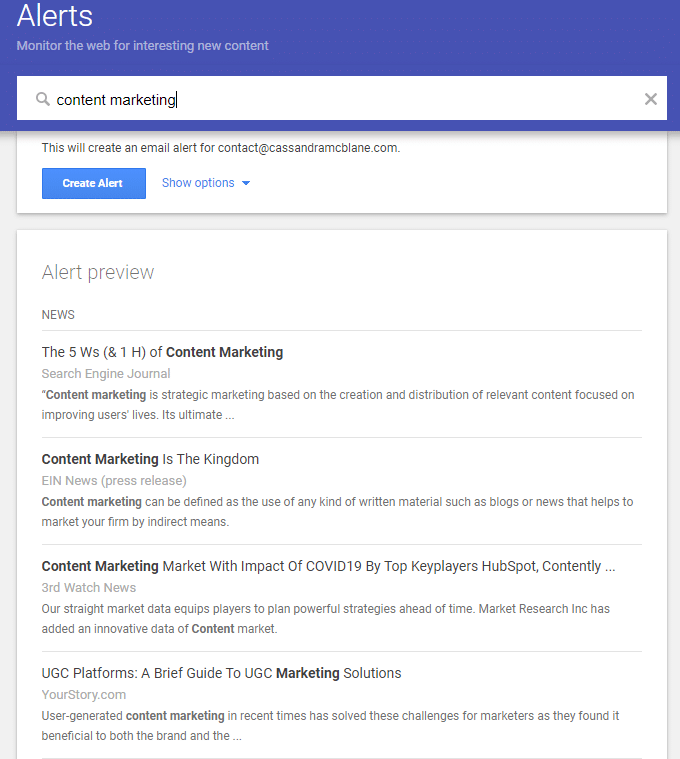
From here, whenever new content is published that matches these keywords, you’ll receive a notification. This allows you to stay informed about the latest developments in your field and identify potential link-building opportunities. For instance, if a blogger publishes a post related to one of your keywords, you can reach out to them and suggest a collaboration or guest post opportunity. You can build links more efficiently and effectively by staying alert to these opportunities.
A Few Key Things to Note with Backlink Building in 2023
Finding the Right Blog Links to Websites
Backlink building in 2023 is not the same as it was a few years ago. Google’s algorithms have evolved, and the search engine now places a premium on the quality of backlinks. This means that link builders should focus on securing links from reputable, authoritative sites. Additionally, it’s important to note that not all backlinks are created equal. Links from relevant, high-authority sites are more valuable than links from low-quality or unrelated sites. Therefore, be selective about the links you pursue, and always prioritise quality over quantity.
Take Care When You Set Your Google Alert to Find the Right External Link Opportunities
As such, when you start to set your Google Alerts, there are some ways to phrase your wording, all of which have a big impact on the results you get.
For instance, if you ask for alerts for content marketing, Google will send you notifications for these that may feature both ‘content’ and ‘marketing’ separately. That means the articles may not necessarily be directly about the core phrase ‘content marketing’, and may be about the two phrases separately (e.g., content OR marketing). If you want to make this more accurate, change your input to “content marketing”. Adding quotation marks ensures you get the exact phrase.
Additionally, external link builders have the option to set up multiple alerts, offering you the best shot of getting the most out of this feature. Consider setting up notifications for things like:
- Your business’s name
- Your services or products
- Your target keywords (like content marketing)
- People attached to your brand (staff, influencers, etc.)
All these examples allow you to ask for a link back to your website. At the same time, it remains relevant, especially if these publications directly discuss your brand or offering.
How Link Builders Can Ask for an External Link
Once you’ve received a list of alerts that relate to your brand, it’s time to reach out to those who published these pieces in the first place. You might need to hunt around for their email on their site or check out their LinkedIn, if you haven’t done the research beforehand.
While we still recommend approaching this strategy with care and attention towards cultivating quality relationships, when link builders need some quick wins, they can apply a short, sharp and flexible message, such as:
Hello {name},
I noticed you mentioned our brand in your article (title of article) that you recently published. We are so excited and appreciative of this and are really glad you took the time to mention us.
Along with just saying thanks, we are also wondering if it would be possible to include a link to our website within this mention? We would really appreciate it!
Kind regards,
{your name}
If you’ve been working hard to connect with these publications or authors already, chances are they’ll know you and appreciate the lengths you’ve gone to get to know them. This will give you an added edge when you ask for a link. If you haven’t done this legwork, it might be a little harder, but it’s always worth the shot.
Above all, external link builders should never beg. There is nothing more annoying than a digital marketer or business owner trying to ‘nag’ for a backlink. Be polite, appreciative and respectful of the other person’s time.
Remember that the more effort you put into establishing quality relationships with your network, the more you’ll be able to come across these opportunities with ease.
Invest in Professional SEO Link Building Services
Ready to take the hassle out of backlink building? At Digital Eagles, we specialise in crafting robust SEO strategies that feature securing high-quality blogs that link to our client’s websites, driving traffic and boosting your site’s visibility.
With our expertise, watch your website soar in search rankings without lifting a finger. Contact us at Digital Eagles today for a tailored approach to SEO link-building services that deliver results.













